- Home
- David Lubar
Goop Soup Page 2
Goop Soup Read online
Page 2
I went upstairs and checked out my foot. There was a small hole through it, a couple inches behind my middle toe, but it didn’t look too bad. After seeing the ends of my own broken fingers several times, a tiny hole wasn’t a big deal at all.
I took a shower, even though I hadn’t actually sweated. When you’re dead, it’s not a bad idea to try to stay clean. I put some soap on both ends of the hole, just in case, and rinsed it really well.
As I was turning off the water, something dark plopped onto my arm from the showerhead. “Great,” I muttered. “The whole universe decided it’s Plop Stuff on Nathan Day.” I could just imagine large flocks of seagulls making their way toward East Craven. And bats. Lots of bats.
I stared at the glop on my arm. It was the size and shape of a gumdrop, and the color of the dark green sludge you find when you clean an aquarium filter. It quivered for a moment, like it was trying to keep its shape, and then it got softer and flowed across my arm.
Another large drop was hanging from the shower-head. I touched it with my finger. It was oily and thick, sort of like Mom’s version of cooked spinach. Though there’s no way it could be as deadly. Mom can cook all the health out of even the most nutritious vegetable.
I went to the sink and washed the goop off my arm and finger. The water from the faucet seemed fine. I figured the dark stuff was just some kind of gunk that had built up in the showerhead. No big deal. I went back to my room and did my homework. By then, it was time for dinner.
Mom brought takeout from Random Wok. They have Chinese food, and all sorts of other Asian stuff, too, like sushi, pho, and pad Thai.
I was pushing some kung pao chicken around on my plate, pretending to eat, when Dad told Mom, “Nate and I went for a jog.”
“That’s wonderful,” Mom said. “It was a beautiful day.”
“We cut across the new road,” he said. “Those builders really should be more careful.”
Don’t say it. I clutched my chopsticks and hoped Dad wouldn’t give her the details.
“Careful?” Mom asked. “Why?”
Please don’t tell her.
“He stepped on a rusty nail,” Dad said.
NO! His words hung in the air for a moment. I wanted to grab them and stuff them under the couch cushions before Mom reacted. But I knew it was too late. There are some things that moms should never hear. Rusty nail is way up there near the top of the list, right next to BB gun, pet snake, and cliff diving.
“A rusty nail?” Mom screamed. “A rusty nail!” She leaped from her seat, dashed over to me, and grabbed my ankles. “Let me see?”
I felt like a horse that was about to get shoes. “It’s nothing.” I was really glad I’d taken off my sneakers and put on different socks, so there was no sign of the hole.
She grabbed the tops of my socks. “Let me see.”
I pulled my feet away. “I’ll do it.”
I couldn’t show her my left foot. I couldn’t show her an uninjured foot, either. She’d know it was the wrong foot and ask to see the other one. I slipped off my right sock. As I did that, I scratched the bottom of my foot with my thumbnail.
“Look, it’s nothing.” I showed her the place I’d scratched.
“You can’t take chances with rusty nails. You’ll probably need a tetanus booster. I’m calling Dr. Scrivella’s office right now. Maybe he can see you tonight.” She grabbed her cell phone and headed for the hallway.
I’d had my yearly checkup with Dr. Scrivella a week or two before I’d become a zombie. I thought I was safe until next year. I’d be in big trouble if I had to see him now. If anyone could tell the living from the dead, it would be a doctor.
Mom came back from the hallway.
“Dr. Scrivella doesn’t think it’s an emergency,” she said.
“Good. I told you I was okay.” That was a relief.
“But I explained how concerned I was, and he wants to check you over, and maybe give you a shot. Don’t make any plans for after school on Wednesday. You have an appointment.”
I couldn’t let the doctor get near me. He was really old, and his eyesight was awful, but he’d have to be dead himself not to figure out that I was a zombie.
Don’t worry—he’s just going to look at your foot and give you a shot. He won’t notice that you’re dead.
But I couldn’t take that chance. Mom gets all overprotective if I sneeze or cough. She was totally freaking out about a tiny scratch from a rusty nail. I didn’t know what she’d do if she found out I’d stopped breathing, sleeping, or feeling pain.
“I don’t need an appointment,” I said. “I’m fine.”
“Oh, don’t be such a baby,” Dad said. “It won’t hurt.”
That was true. Dr. Scrivella could give me shots all day long with a basketball pump, and I wouldn’t even flinch. “It’s not that,” I said. “I have this thing I have to do after school Wednesday.”
“Do it some other time,” Mom said.
“But . . .” I realized that stalling wouldn’t help. If Mom wanted me to go to the doctor, I’d go to the doctor. One way or another, she’d make sure I got there.
So, that was my day. An unknown mission coming from BUM at an unknown time, and an appointment with Dr. Scrivella in less than two days.
BUM got in touch with me sooner than I expected. This time, they didn’t use a fake pigeon. They used a laser beam.
3
Writing on the Wall
As I mentioned, I don’t sleep. I still do all the regular stuff any kid does before bedtime, like brush my teeth and put on my pajamas. But I never fall asleep. I don’t feel tired. Just bored sometimes.
I still haven’t figured out the perfect way to kill all that extra time. Mostly, after my parents fall asleep, I get on the computer and play games. I’d been into role-playing games for a while, but I just found a site with all these awesome old-school platform games. So I was doing a lot of running, jumping, climbing, and diving.
Monday night, I didn’t have a chance to get bored.
As I was sitting in bed, listening to my parents head off to their room, I noticed a flash out of the corner of my eye. Red letters appeared on my wall.
NATHAN
IF YOU SEE THIS
SWITCH YOUR LIGHT ON AND OFF
The letters had the flickery look of a laser. I switched my lamp off and on. The letters on my wall changed.
GO TO BUM
I put my clothes back on. I had a good escape route from my house—out the window, and then across the garage roof to the drainpipe. My parents slept on the other side of the house, so there wasn’t much chance they’d hear me leave, unless I made a whole lot of noise. I’m not as clumsy as Mookie, but even when I try to be quiet, I sometimes bang around a bit.
The entrance to BUM is inside the Museum of Tile and Grout, which is on the other side of town from here. Luckily, East Craven is a small town. Our neighborhood is totally safe. Dad doesn’t even lock the car when he leaves it in the driveway.
I thought about jogging to the museum, but I didn’t want to attract too much attention. There were people out for walks. Some of them were just strolling. Others looked like they had places to go. None of them acted like they even noticed me.
The museum door was unlocked. The lady at the desk smiled at me, but she didn’t stop knitting. I headed for the elevator. The door opened when I got close. I went inside and took a seat. The elevator is actually a high-speed car that shoots from East Craven to BUM headquarters, wherever that is.
Mr. Murphy was waiting for me at the end of my ride. He’s tall, with big ears, red hair, and a bit too much enthusiasm for making fun of me.
“I still don’t understand why you won’t use e-mail,” I said.
“I don’t understand why there are so many different brands of blue jeans for sale,” he said.
“Very funny.” I reached into my pocket, pulled out my cell phone, and waved it in his face. My folks had gotten it for me last Christmas, after a year of nonstop begging. “Seriously, you co
uld just call me. Or text me. And you don’t wear jeans.”
“Phone lines are not secure. E-mail isn’t secure. Texting is absurdly slow and tedious. I can’t risk letting our enemies learn about you. And, for your information, I happen to look quite splendid in jeans. But enough of that. You need to start preparing for your mission.”
Mission. I liked the sound of that. “What will I be doing?”
“Infiltrating an enemy staging base. We want you to slip in, copy their computer files, and then slip out.”
“What’s a staging base?”
“That’s where the bad guys set things up to carry out a mission,” he said. “Sort of like their local headquarters.”
“What enemy?”
“RABID.”
“RABBIT? They don’t sound very dangerous. Are they related to BUNNY?” I pictured a field of long-eared, twitchy-nosed spies wearing dark glasses and jabbing each other with pointed carrots.
“Not RABBIT. RABID. Raise Anarchy by Inciting Disorder. They’re dedicated to destroying freedom and democracy.”
“Why?”
“That’s a long, boring, and complicated story, Nathan. To tell the truth, politics often doesn’t make much sense. And even when it makes sense, it can be quite depressing. I’ll give you the short version. They want absolute power and total control. That can’t happen as long as people are free.”
I thought about that for a moment. Even though Mr. Murphy felt it was too complicated for me, it sounded sort of familiar. Power and control. Any fifth-grader knew all about that. “So, really, what they are is bullies,” I said. Or gym teachers.
Mr. Murphy looked surprised. “Nathan, that’s an excellent way to put it. Bullies. Yes. It’s not just people who can be bullies. Organizations can act like that, too. RABID is a bunch of bullies.”
“And they’re the bad guys you’ve been trying to stop?”
“They’re one group of bad guys,” Mr. Murphy said. “Unfortunately, there are many others. SPLOTCH has been giving us trouble in Europe. GACK has been quiet for a while, though we expect them to start up again soon in North Africa. MUCOUS, in Asia, is really causing problems. As is the Belgian branch of PHLEGM.”
“That’s a lot of bad guys,” I said.
“It’s a big world. But right now, RABID is especially dangerous, and especially difficult to defeat, because they work in small groups, spread all over the world. They have a central headquarters, but we’ve never managed to find it. Let me give you a better idea of what we’re up against.”
He led me to the room with the large flat screen. I’d been there before, watching a video about the important work BUM does. This time, instead of a video, Mr. Murphy put up a picture of a town.
“This is Gwinthmyr, a small town in Wales. Until fifteen years ago, it was a happy place. Then, suddenly, the air started to smell like garlic.”
“I love garlic,” I said.
“Many people do,” Mr. Murphy said. “But nobody was happy about an endless aroma of garlic. People complained. The government looked into it and failed to find a cause. People started to dislike their local leaders more than usual. Fortunately, agents of one of our sister organizations discovered the device RABID had installed and destroyed it.”
Mr. Murphy flipped through a series of other pictures.
“Adlesville, Ireland—a storage tank holding a hundred thousand gallons of molasses mysteriously ruptured, flooding the town knee-deep in syrup. Borman, Arizona—all cable and satellite TV stopped working. Perchangy, Australia—every sidewalk in town developed cracks and holes. Whamply, Canada—fifty thousand small toads invaded the town, clogging everything.”
“The road must have gotten real slippery,” I said.
“It wasn’t pretty,” Mr. Murphy said. “All of this was the work of RABID. This is only a small example of what they’ve done. Not to mention at least a dozen plots we’ve managed to stop over the past several years before they could be put into action.”
“These guys really stink. I definitely want to help.”
“Excellent. Come on—let’s get to the lab. Dr. Cushing wants to explain something to you.” He headed down the hallway.
I thought about all the dangerous stuff I’d seen at BUM headquarters. They’d collected it to keep it away from kids. BUM looked for kids who’d become useful as spies because of some sort of accident—like the one I’d had. The bad guys didn’t just look for kids like me who’d had useful accidents—they made stuff that could cause accidents. “Does RABID make things that hurt kids?”
“That’s one of the things they do. But it’s not their main mission. They’re much more interested in creating disorder for large groups of people than they are in creating misadventures.”
“Where is this staging base?” I wondered whether I’d get to go to Europe or Asia. That would be awesome.
“We don’t know the exact location yet.”
“Doesn’t that make it sort of hard to break in? I mean, if you don’t know where the bad guys are, how can you go there?”
“We’re working on it,” he said. “Information tends to trickle in. The bad guys don’t have a Web site. They don’t run ads on TV. We have to patch things together from thousands of clues. Recent activity indicates RABID is planning something on the East Coast. We should know where they are very soon, even though we still have no idea what they’re planning. I hope we’ll be going into action by the end of this week. But we’re getting ahead of ourselves. You need to train first.”
“Train?”
“Of course. Unless you think you were born knowing how to be a spy. Were you? Did you appear on this planet knowing all there is to know about espionage?”
“Nope. But I’ve seen a lot of spy movies.”
“I’m sure that will come in handy. But, as I was saying, a boy such as yourself, who has experienced a misadventure, can be very useful. And a trained spy can be very useful. But if you combine the two, you have an amazing agent.” He patted my shoulder. “You are going to accomplish dazzling things, Nathan.”
“Cool.” I imagined myself learning to do all sorts of spy stuff, just like in the movies. Maybe they’d teach me to fly a helicopter. “When do I start training?”
“As soon as we’re finished here.”
We’d reached the lab. “Nathan, it’s good to see you,” Dr. Cushing said. “How have you been?” I noticed she’d gotten a couple highlights in her dark hair. Mom got highlights once in a while. I’m not sure what the point was of all that, but it did look pretty nice on Dr. Cushing.
“I’ve been okay. Any luck with the bone machine?” I asked. She was trying to develop a machine that would strengthen my bones.
“I’m working on it. And some other things that might make your life easier. But right now, I just wanted to explain a theory I had, so your first training session makes sense. Okay?”
“Sure.” That’s one of the reasons I liked her. Mr. Murphy tried to keep as much as possible a secret from everyone. Dr. Cushing explained things.
“Have you ever felt that someone was staring at you?” she asked.
“All the time now,” I said. “I’m afraid they’ll notice something is wrong and figure out I’m dead.”
“Not like that,” she said. “But when you’re just sitting somewhere or walking, and you sense something.”
“Yeah, sure.” I knew what she meant. I’d feel eyes on me, and a lot of the time, someone really was staring. It happened pretty often when Rodney was around. He was the biggest bully in the school—though he was still out sick, recovering from the high school wrestling disaster. Bullies had extra-strength stares. “What’s that have to do with me?”
“There are aspects of life we don’t understand,” Dr. Cushing said. “People really do sense things we can’t explain. Just like we can’t explain how you can move your finger even when it isn’t attached to your body. We’re hoping that, since you aren’t alive, you might be less easy to sense.”
“Or maybe eve
n senseless,” Mr. Murphy said. He let out a giggle.
“How can you test that?” I asked.
“In the field,” Mr. Murphy said. “We’re going to take you out in the real world and see what happens.”
4
Stare Case
I followed him back to the row of elevator doors. Instead of my usual door, a different one opened. There were two seats inside. “Where are we going?” I asked.
“It doesn’t matter.”
“So there’s no reason you can’t tell me.”
“There’s no reason I should tell you. Curiosity killed the spy.”
“It killed the cat,” I said.
“The cat happened to be a spy. Cats are sneaky. Haven’t you noticed?”
The car rotated, then shot off, forcing me against the seat. When we reached the end of the ride, we stepped into a lobby a lot smaller than the one in the Museum of Tile and Grout. I followed Mr. Murphy outside. On the way down the steps, I looked back at the building. A small sign over the door read, CIVIL WAR VETERANS’ SOCIAL CLUB. I had a feeling they didn’t have any members. Unless some soldiers had also been splashed by Hurt-Be-Gone.
Mr. Murphy led me down the street. Two blocks later, I recognized where we were. “It’s the Inner Harbor,” I said. “We came here on a field trip last year.”
Even though it was late, there were a lot of people walking around. Mr. Murphy headed for a bench.
“I want you to stare at people from behind,” he said.
“I can do that.” I waited until a guy came by. He was eating a slice of pizza and listening to music. As soon as he moved past the bench, I stared at him. He didn’t look back. Between the pizza and the headphones, I figured I could have tossed firecrackers at him and he wouldn’t have paid any attention. But I did it five more times, with people who weren’t distracted by anything. None of them glanced at me.
Mr. Murphy chuckled. “It looks like you really are dead to the world. Now for the real test. Follow the next person. See if you can shadow them for three blocks without being noticed.”

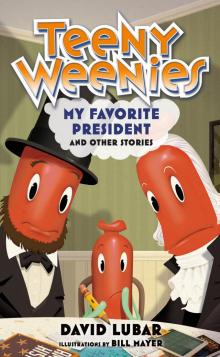 Teeny Weenies: My Favorite President
Teeny Weenies: My Favorite President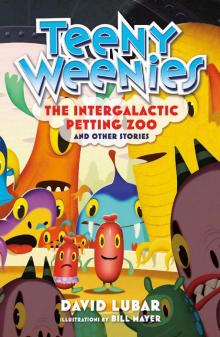 Teeny Weenies: The Intergalactic Petting Zoo
Teeny Weenies: The Intergalactic Petting Zoo Teeny Weenies: The Eighth Octopus
Teeny Weenies: The Eighth Octopus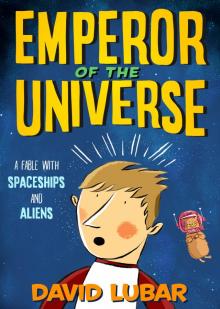 Emperor of the Universe
Emperor of the Universe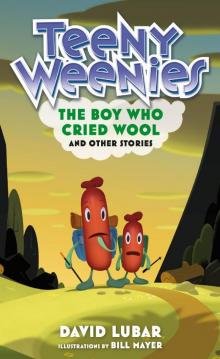 Teeny Weenies: The Boy Who Cried Wool
Teeny Weenies: The Boy Who Cried Wool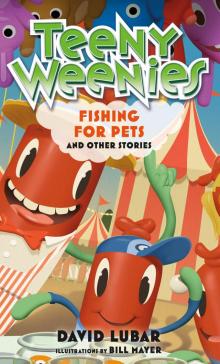 Teeny Weenies: Fishing for Pets
Teeny Weenies: Fishing for Pets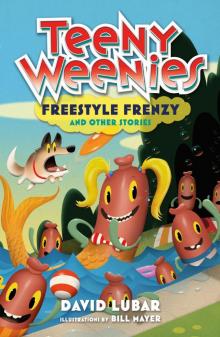 Teeny Weenies: Freestyle Frenzy
Teeny Weenies: Freestyle Frenzy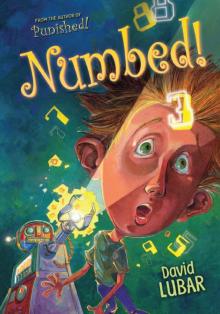 Numbed!
Numbed!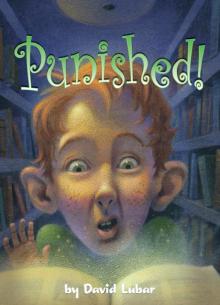 Punished!
Punished!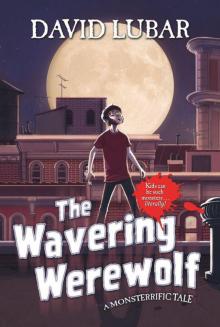 The Wavering Werewolf: A Monsterrific Tale (Monsterrific Tales)
The Wavering Werewolf: A Monsterrific Tale (Monsterrific Tales)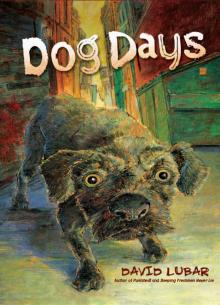 Dog Days
Dog Days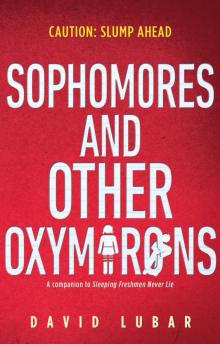 Sophomores and Other Oxymorons
Sophomores and Other Oxymorons The Psychozone
The Psychozone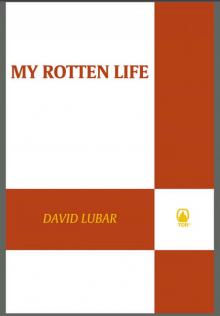 My Rotten Life
My Rotten Life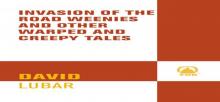 Invasion of the Road Weenies
Invasion of the Road Weenies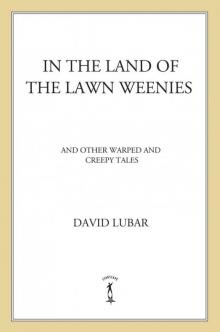 In the Land of the Lawn Weenies
In the Land of the Lawn Weenies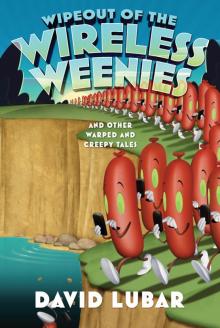 Wipeout of the Wireless Weenies
Wipeout of the Wireless Weenies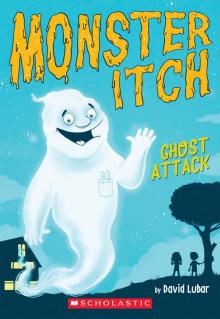 Ghost Attack
Ghost Attack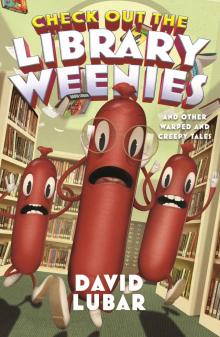 Check Out the Library Weenies
Check Out the Library Weenies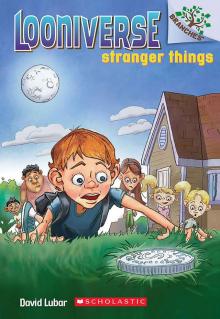 Looniverse #1: Stranger Things (A Branches Book)
Looniverse #1: Stranger Things (A Branches Book)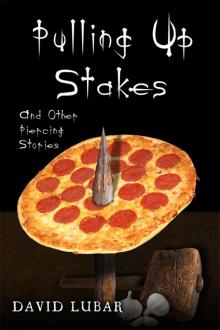 Pulling up Stakes and Other Piercing Stories
Pulling up Stakes and Other Piercing Stories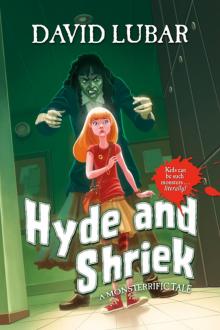 Hyde and Shriek
Hyde and Shriek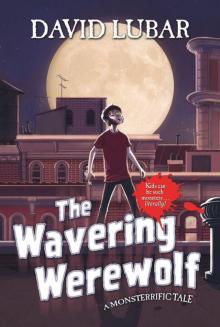 The Wavering Werewolf
The Wavering Werewolf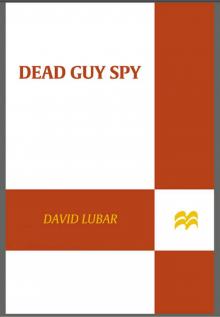 Dead Guy Spy
Dead Guy Spy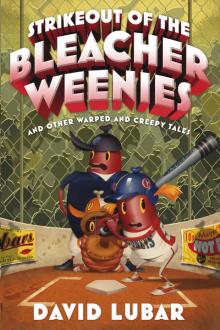 Strikeout of the Bleacher Weenies
Strikeout of the Bleacher Weenies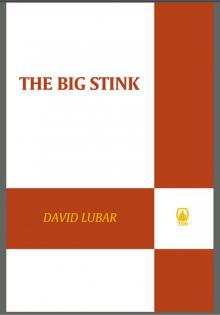 The Big Stink
The Big Stink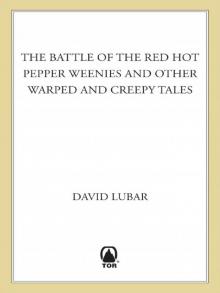 The Battle of the Red Hot Pepper Weenies
The Battle of the Red Hot Pepper Weenies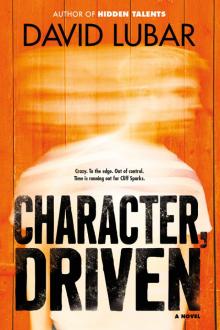 Character, Driven
Character, Driven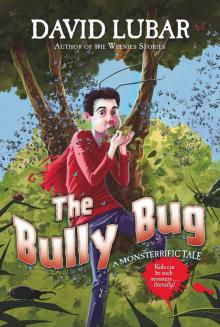 The Bully Bug
The Bully Bug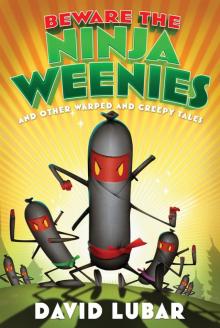 Beware the Ninja Weenies
Beware the Ninja Weenies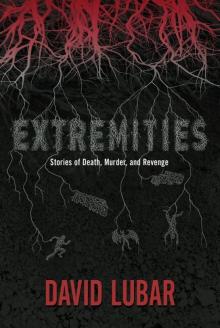 Extremities: Stories of Death, Murder, and Revenge
Extremities: Stories of Death, Murder, and Revenge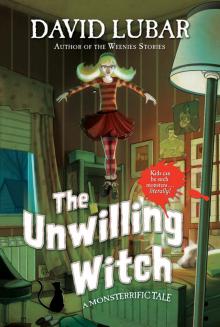 The Unwilling Witch
The Unwilling Witch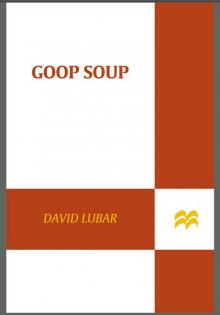 Goop Soup
Goop Soup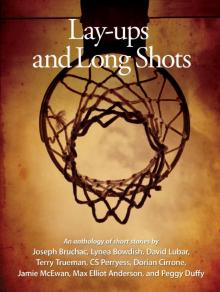 Lay-ups and Long Shots
Lay-ups and Long Shots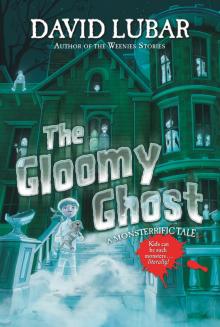 The Gloomy Ghost
The Gloomy Ghost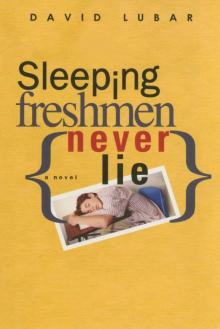 Sleeping Freshmen Never Lie
Sleeping Freshmen Never Lie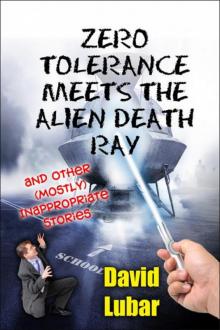 Zero Tolerance Meets the Alien Death Ray and Other (Mostly) Inappropriate Stories
Zero Tolerance Meets the Alien Death Ray and Other (Mostly) Inappropriate Stories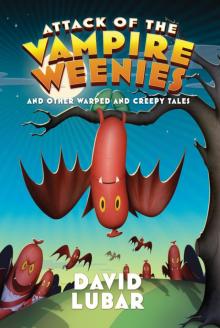 Attack of the Vampire Weenies
Attack of the Vampire Weenies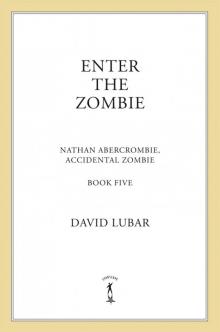 Enter the Zombie
Enter the Zombie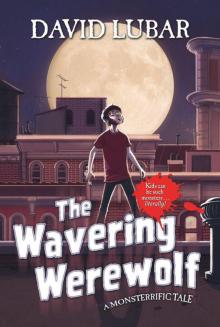 The Wavering Werewolf_A Monsterrific Tale
The Wavering Werewolf_A Monsterrific Tale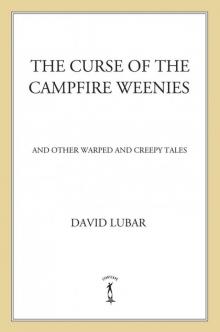 The Curse of the Campfire Weenies
The Curse of the Campfire Weenies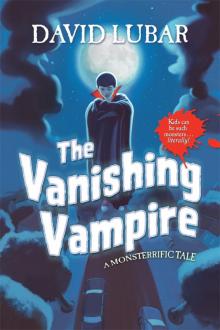 The Vanishing Vampire
The Vanishing Vampire